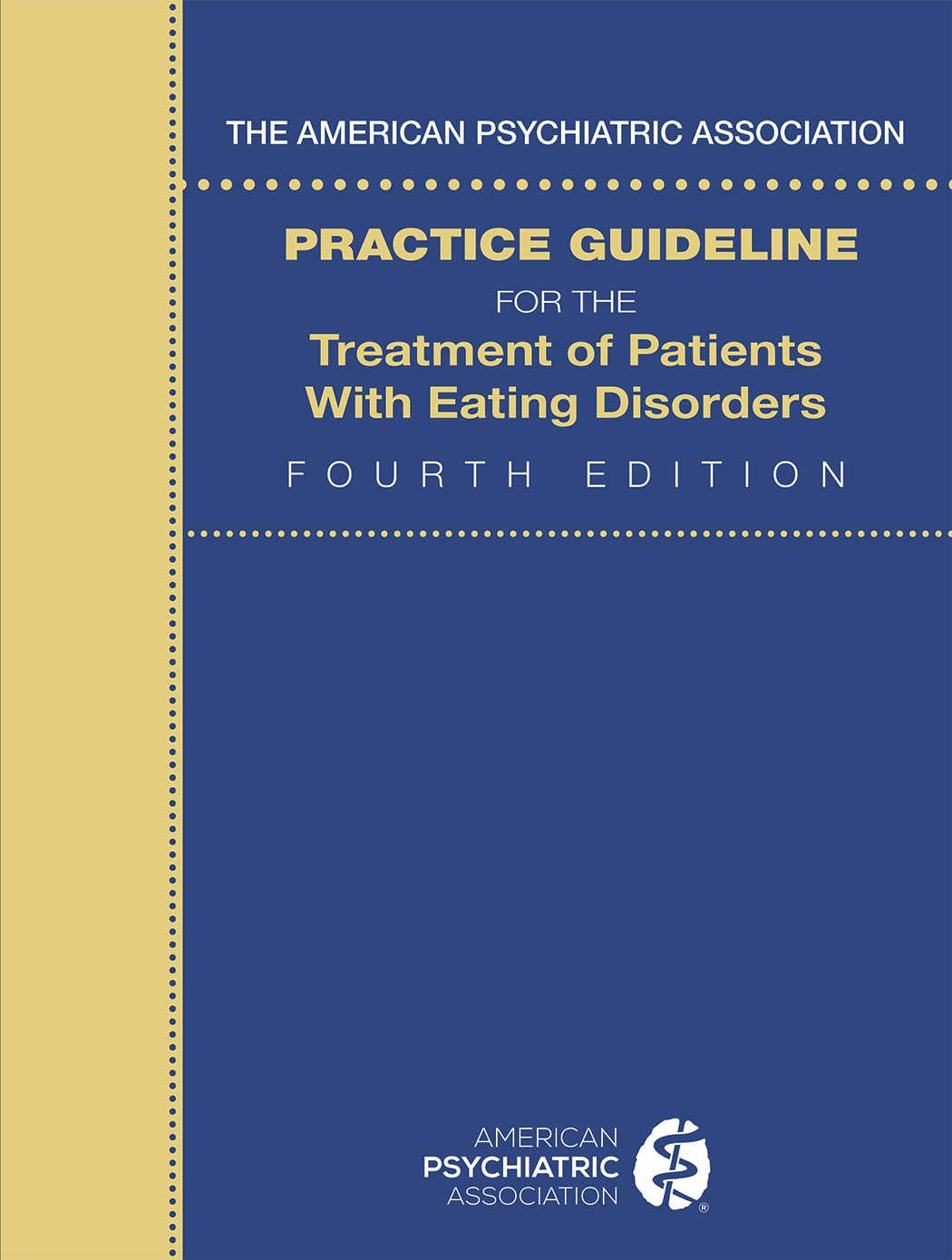Introduction
Sections
Excerpt
The goal of this guideline is to improve the quality of care and treatment outcomes for patients with eating disorders, as defined by the Diagnostic and Statistical Manual of Mental Disorders, 5th Edition (DSM-5; American Psychiatric Association 2013). As described in “Scope of Document,” we focus primarily on anorexia nervosa (AN), bulimia nervosa (BN), and binge-eating disorder (BED) rather than other DSM-defined feeding and eating disorders. Since publication of the last American Psychiatric Association (APA) practice guideline (American Psychiatric Association 2006) and guideline watch on eating disorders (Yager et al. 2012), there have been many studies on psychotherapies for individuals with these diagnoses as well as some studies on pharmacotherapies. Despite this, there are still substantial gaps in the availability and use of evidence-based treatments for individuals with an eating disorder (Kazdin et al. 2017). This practice guideline aims to help clinicians improve care for their patients by reviewing current evidence and providing evidence-based statements that are intended to enhance knowledge, increase assessment, and optimize treatment of eating disorders.



